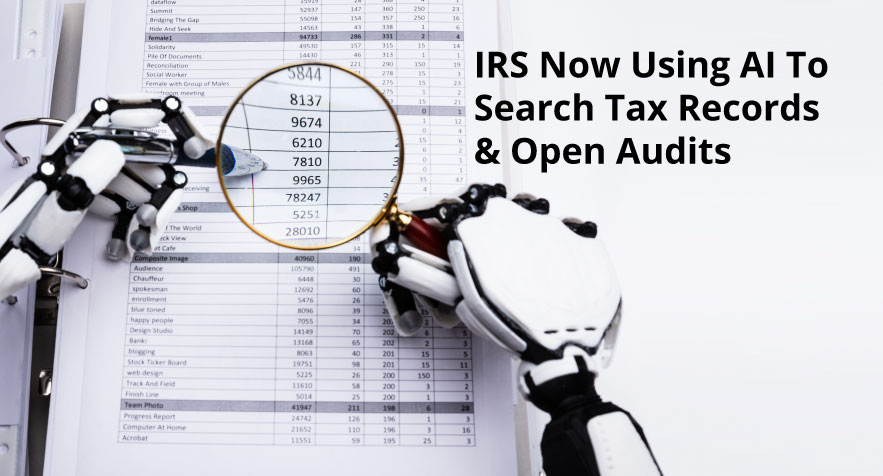IRS Implements AI to Find Discrepancies and Open New Audits
One of the worst kept secrets about the Internal Revenue Service is that their computer systems are old, very old. In fact, the IRS was one of the first major institutions to implement and use computers on a large scale back in the 1960s. Unfortunately for them, and fortunately for many taxpayers, the IRS still uses computer systems that are backward compatible to some of those archaic systems. As such, and due to a general lack of funding, the IRS’s computers are significantly less advanced than most modern banks, businesses, and government agencies. As such, numerous tax issues escape the IRS’s attention due simply to bad technology. That is all about to change.
The IRS recently launched the first part of its flagship CADE 2 system. The new system overhauls the Service’s internal operating languages and to replaces decrepit databases with cutting edge hardware and software that is compatible with all modern computer technologies. The IRS will use CADE 2 to implement advanced Artificial Intelligence and data analytics to locate previously undiscovered tax issues.
The IRS already has the world’s largest database of financial information that it obtained through a series of banking regulations, information requirements (1099s, FBARs, etc.) and tax treaties. The CADE 2 system will let the IRS finally organize and effectively navigate this huge database. For example, the IRS will use AI driven data analytics to review taxpayer transactions, business relationships, places of residence, and tax return data to find discrepancies and open tax audits.
The IRS’s new technology is so impressive in fact that the Service, in conjunction with the Department of Justice have claimed the ability to fully deanonymize crypto currency transactions. The Government has kept the details of this technology secret but has already demonstrated on several occasions, most notably with Silk Road, the ability to look through crypto transactions to see the people on either side.
As such, the days of hoping that the IRS does not find a tax problem are coming to an end. Moreover, President Biden’s Inflation Reduction Act gave the IRS $80 billion to act on the new data from Cade 2. As such, the IRS can and will find and audit people who previously escaped the Service’s notice. Therefore, we strongly recommend that anyone who suspects they have any significant tax problems find and consult a qualified tax expert (EA or Tax Attorney) to determine the best way to protect themselves from the IRS’s new AI capabilities.



Comments (0)